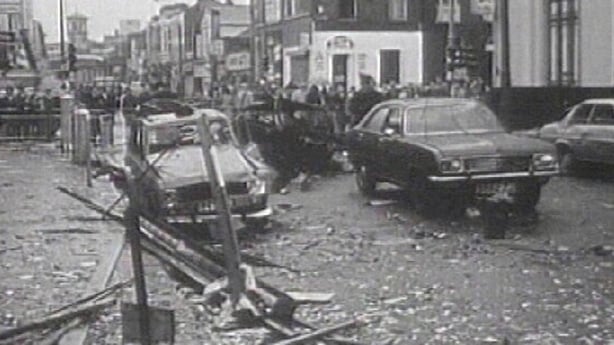An international expert panel has found that the Irish government "failed to carry out effective investigations" into attacks carried out in the Republic during the Northern Ireland conflict.
An expert panel, convened by the Norwegian Centre for Human Rights, published its report 'Bitter Legacy: State Impunity in the Northern Ireland Conflict' in Belfast yesterday.
The authors and families of victims of the Troubles are in Dublin to raise awareness about its findings and will travel to London tomorrow to call for the Legacy Act to be repealed.
The expert panel, which included two former senior police officers, spent a year assessing British government actions throughout the conflict.
The report concluded that a succession of Irish governments failed survivors and the victims' families for decades following investigations into a series of attacks carried out by loyalists in the Irish State in the 1970s.
While the report concentrates on the responsibility of the UK government for actions resulting in impunity, it also addresses failures by the Irish government in relation to the treatment of victims and survivors of attacks carried out in its jurisdiction.
The panel also questioned why the Department of Justice has "failed to produce any files relating to the Dublin bombings" in May 1974.
Thirty-three people, including a pregnant woman, died in bombings in Dublin and Monaghan on 17 May 1974. It was the greatest loss of life in a single day of the conflict. Many others were injured.
The panel said that the 2003 and 2004 reports of the public inquiries established by the Irish government into the 1974 Dublin and Monaghan bombings also revealed a lack of cooperation from both the British and Irish authorities.

"In some cases, information has been refused. Where this has occurred, the Inquiry has not speculated as to what that information might have been," the report said.
"In certain cases, the Inquiry has entertained a suspicion that it was being withheld because of a belief on the part of the person or body concerned that it might be detrimental to their interests."
The report also found that gardaí also "failed to properly meet its obligations to survivors and families" according to the authors.
The panel reported that it heard directly from many of those affected who are "deeply frustrated by the lack of serious engagement by Irish authorities" noting that this has been a common sentiment from survivors in the UK and Ireland.
The report highlighted a series of attacks in the Republic, among them:
- In Dublin in December 1972 and January 1973
- At Dublin Airport in 1975
- In Belturbet, Co Cavan (December 1972)
- In Dundalk, Co Louth (December 1975)
- In Castleblayney, Co Monaghan (March 1976)
- In Dundalk in 1976 when Seamus Ludlow was murdered in a sectarian attack
- In Dublin (May 1994) when a loyalist gang planted a bomb at the entrance of Widow Scallan's pub, where a Republican function was taking place on the first floor of the premises. The security guard, Martin Doherty, confronted the gang and was shot dead
The international expert panel noted that successive UK and Irish governments have set up inquiries and other "piecemeal measures" to investigate State involvement in legacy cases.
However, the reported highlighted that factors such as obstruction have "clearly made it difficult if not impossible for these investigations to discover the truth or to achieve meaningful accountability in most instances".
The authors further elaborated: "The examples given represent a level of obstruction that is not only widespread, but also systematic and systemic, with the result that perpetrators of violations have been provided with impunity and victims have been denied their right to truth, justice and reparation."
The panel also found that the British government operated a "widespread, systematic and systemic practice of impunity", protecting security forces from sanction during the Troubles.
Convenor of the panel, Gisle Kvanvig, said it reviewed existing reports such as inquests, coroners reports and ombudsman's reports, so they placed an emphasis on only looking into publicly available and official documents.







